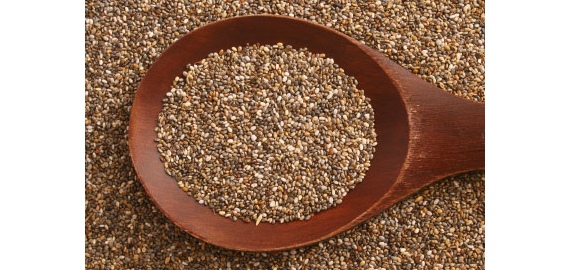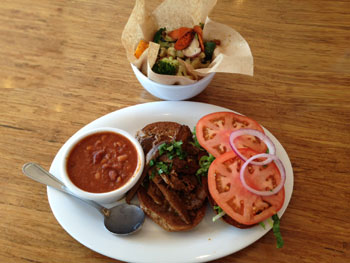Size Stalking – Social Networking’s Impact on Weight Loss
 If you believe the rumors, Hollywood has coupled up and A-listers such as Nicole and Paris, Drew and Cameron and Katie and Posh are leading the way in a new slimming trend known as size stalking. After setting your sights on a super skinny friend, copycat diets and exercise programs are followed, thus getting into the shape as she.
If you believe the rumors, Hollywood has coupled up and A-listers such as Nicole and Paris, Drew and Cameron and Katie and Posh are leading the way in a new slimming trend known as size stalking. After setting your sights on a super skinny friend, copycat diets and exercise programs are followed, thus getting into the shape as she.
If you are feeling fat and weigh more than you would like, perhaps you should look at your friends. A study published in the New England Journal of Medicine (July 26, 2007) has concluded that obesity can spread from person to person, reminiscent of a virus. When one person gains weight, their friends tend to gain weight too. This effect also occurs with weight loss.
In a detailed study, researchers examined the social networks of 12,067 people, which had been followed for 32 years (from 1971 until 2003). This means those investigating knew details such as weight taken at various points during the 32 year period of neighbors, spouses, family members, friends and even friends of friends’ friends.
WEIGHT LOSS 2.0 – SOCIAL NETWORKS MAKE YOU FAT OR SKINNY
- We are most likely to become obese when a friend becomes obese, increasing our chances of obesity by 57%.
- The ultimate influence is that between mutual close friends. If our friend becomes obese this increases our chances of obesity by 171% – nearly doubling the risk!
- Even if hundreds of miles separate friends, this effect remains.
- Friends and siblings of the same sex appear to have a greater influence on weight gain/ loss than those of the opposite sex.
- We are more influenced by those who resemble us.
- Weight gain or weight loss in family members had a smaller effect compared to the influence of friends.
- Weight gain or weight loss in neighbors had no effect.
Although the general trend in the study was that most people were gaining weight – resulting in an obesity epidemic – the same effect was observed for weight loss.
REASON?
If we identify a person as our friend, we hold that person in high regard, which in turn can affect our view of what we consider normal or acceptable. The study suggests that the ‘spreading’ of obesity has less to do with the imitation of our friend’s behavior and more to do with a change in our perception of what we consider to be the social norm in terms of how acceptable we regard obesity. Thus, when we observe our friends gaining weight, weight gain may become more acceptable in ourselves.
WEIGHT LOSS?
The obvious take-home message seems to be to avoid making or having fat friends. However, since weight loss can be equally ‘caught’ as weight gain, focusing on what your skinny friends are doing (or making friends with slim people) could provide an answer to many peoples weight loss conundrums.
So, has a new trend been set in motion? Size-stalking?
HOW TO USE SIZE-STALKING TO YOUR ADVANTAGE
- Find your slimmest friend, one who is trim, healthy and looks great on the beach. This is vital, since there are many ‘skinny’ people out there who are wobbly under their protective layer of clothes.
- Make sure you share similar body types. There is no point copying someone who is an ectomorph (ultra-fast metabolism) and eating thousands of calories a day, when you are an endomorph (sluggish metabolism) and get fat by simply looking at a burger.
- Make sure your friend does not have an eating disorder. The aim is to learn how the skinny get and stay skinny – healthily. It is possible. Use common sense.
- Ask your friend if you can do this. The most likely scenario is that they will be flattered and want to help.
When size-stalking your skinny friend, take note of points such as:
- What’s in your friend’s fridge and kitchen cupboards?
- What kind of foods does your friend eat for breakfast/ lunch/ dinner?
- What does your friend snack on? This is important, since many people drop the ball when it comes to snacking.
- Does your friend make his or her own pack lunch?
- Where does your friend eat and what does he or she order when going out?
- How/ where does your friend workout? How often? What classes? What is their technique? Have you got the right gear?
- How hard does your friend workout? Compare it to what you have done previously: Were you really working out or simply watching TV or reading (this will always be a mystery), while on the treadmill?
Most importantly, learn about your friend’s mindset/ attitude.
- Do you spend the same amount of time it would have taken to complete your workout, trying to get out of it?
- What makes your friend refrain from eating that slice of chocolate cake?
- Why is he or she so driven during their workout?
- What do they say to themselves to get through a grueling 5 mile run?
- If you can successfully copy your friend’s attitude, chances are that you will successfully lose weight.
-
Phytopharm Still Researching Hoodia P57 Molecule
First a little background. Scientists in South Africa at the Council
-
Novo Nordisks Liraglutide Effective At Inducing Weight Loss
Novo Nordisk has just announced that their drug liraglutide is ex
-
How The Quick Weight Loss Method Works
The Quick Weight Loss Diet has built into it elements to reduce you ev
-
Loneliness Won’t Help To Lose Weight
So most people who want to lose weight are embarrassed about the
-
Three Important Aspects To Losing Weight And Exercise
In order to increase your weight loss and improve your exercise progra
-
Where To Find Weight Loss Food
It seems that among the many things responsible for obesity and weight
- DON'T MISS
- Success Through Weight Motivation
- Rapid Weight Loss Tips, Techniques and Strategies
- Your Exercise May Be Causing You to Overeat!
- Managing Peer Pressure to Achieve Weight Loss Goals
- Why Is There Is So Much Soy in Our Packaged Foods ... in Our Cosmetics ... Our Vitamins ... in Our Medicine ... and in Our Beef, Pork and Poultry
- Golf Weight Training Is The Answer To Longer Drives
- Weight Loss Reviews
- Could The Day After Tomorrow Really Happen?
- Dessert For Breakfast: The New Key To Weight Loss?
- Quit Smoking To Live A Healthy Life




